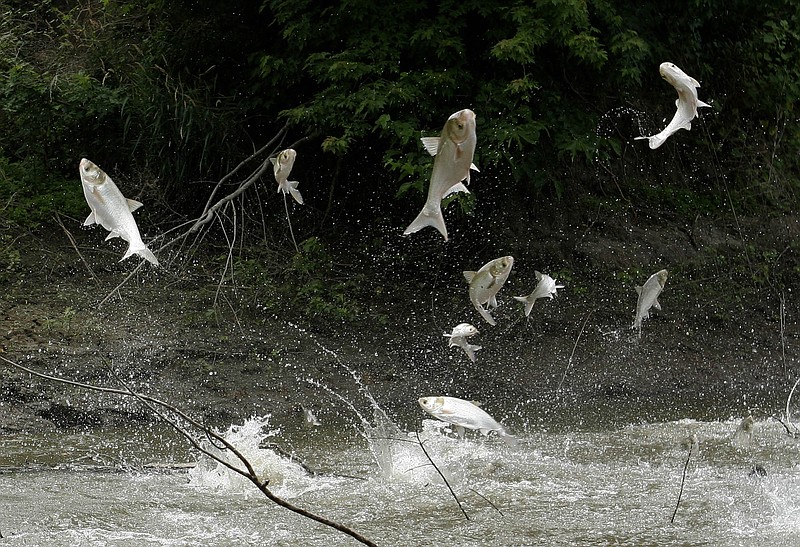NASHVILLE, Tenn. (AP) -- Tennessee Gov. Bill Lee has signed an executive order establishing a commission that will provide advice on mitigating the invasion of Asian carp into the state's lakes and river systems, according to a news release.
Lee signed the new order on Wednesday and the new Asian Carp Advisory Commission will provide its first report in October.
Asian carp were first imported to the U.S. in the 1960s and 1970s to help clean retention ponds, but they later escaped into the Mississippi River system during flooding and have been migrating south ever since. They now threaten to upend aquatic ecosystems, starve out native fish and wipe out endangered mussel and snail populations along the Mississippi River and dozens of tributaries.
Silver and bighead carp, two species of Asian carp threatening the Southeast, are capable of eating up to 40% of their body weight each day and are thought to spread through locks, water navigation systems used in rivers and canals.
(Read more: Invasive carp endanger region's freshwater ecosystem, recreational water users)
Nationally, state and federal agencies have spent roughly $607 million to stop them since 2004. Projects in the works are expected to push the price tag to about $1.5 billion over the next decade.
In 2018 in Tennesee, the fish and wildlife commission had directed $500,000 to the Tennessee Wildlife Resources Agency to aid in efforts to avoid the spread and had committed to providing $250,000 in subsequent years.
In 2019, state officials were optimistic about current evasion efforts, but worried about the possibility of the destructive fish making its way further south in areas they had yet to reach.
In the past, the TWRA and partners have subsidized commercial fishermen to harvest the fish from waterways.
According to the TWRA website, those who locate a small, less than 9 inches, carp anywhere in the state other than the Mississippi River, or catch a carp of any size in East Tennesee or anywhere that the fish is not yet known to be established are asked to put the animal on ice or freeze it and contact the agency.
Pictures can also be submitted if one is not able to catch the fish.
The TWRA can be reached at ans.twra@tn.gov or by calling regional offices whose phone numbers can be located at www.tn.gov/content/tn/twra.html.

